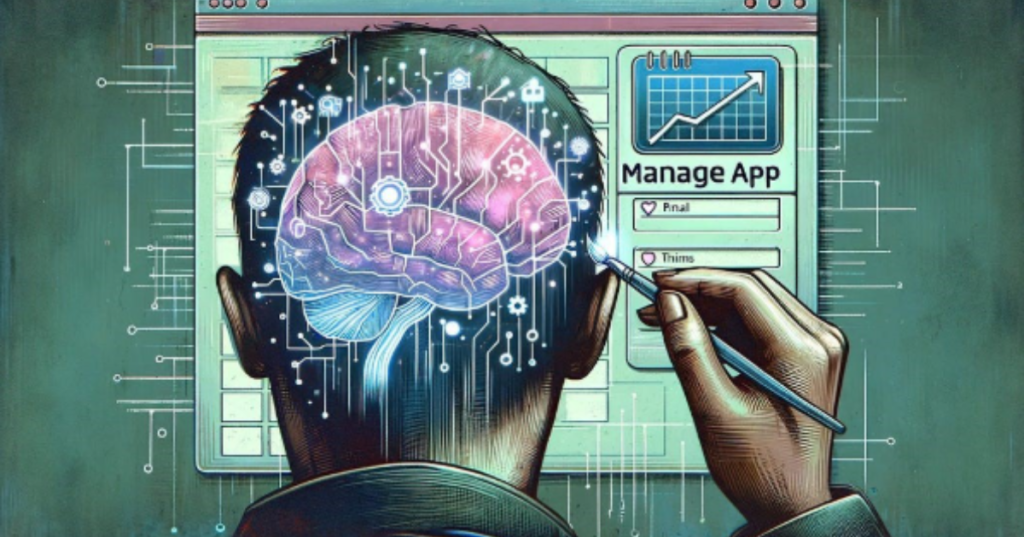Artificial Intelligence (AI) is no longer a concept confined to the data teams who have been quietly working in AI for decades. The rise of LLMs and GenAI has created huge hype and business leaders have been like kids in a candy store, snapping up the latest AI tech without so much as a consideration of the bigger picture!
Don’t get us wrong, AI is transforming how businesses operate. It solves problems with far greater efficiencies than the human hand, creating value across multiple industries. Recognising and understanding that applying AI strategically and collaboratively is essential for effective implementation and adoption will help organisations stay ahead.
AI is the differentiator for so many businesses because it drives efficiency, personalisation, and innovation at a scale that traditional methods can't match. However, significant blockers -technical, organisational, and ethical - can slow adoption.
Why AI is a Differentiator
Automation & Efficiency – AI optimises operations, reducing costs and freeing up human capital for higher-value work. This is critical in industries like finance, healthcare, and retail.
Data-Driven Decision Making – AI analyses vast amounts of data quickly, enabling businesses to make smarter, real-time decisions.
Personalisation at Scale – AI customises experiences for customers (think Netflix recommendations, Amazon shopping, or AI-driven chatbots).
Competitive Edge – Companies that embed AI into their products, services, and internal workflows can outpace competitors in speed and accuracy.
Innovation & New Business Models – AI powers entirely new industries and business models, from AI-generated content to predictive maintenance in manufacturing.
Risk Management & Security – AI detects fraud, cybersecurity threats, and operational risks far more effectively than traditional methods.
Blockers to AI Adoption
Lack of Quality Data – AI models rely on high-quality, well-structured data, which many businesses struggle to manage.
Skills Gap – There’s a shortage of skilled talent, making it hard for organisations to implement AI solutions effectively.
Integration Challenges – Many companies have legacy systems that aren’t AI-ready, leading to high implementation costs.
Bias & Ethical Concerns – AI models can reinforce biases if not properly trained, leading to regulatory and reputational risks with a number of high-profile examples to reference!
High Costs & ROI Uncertainty – Developing and deploying AI can be expensive, and businesses often struggle to quantify the return on investment.
Change Resistance – Employees and leadership often resist AI-driven transformation due to fear of change and/or job displacement compounded by lack of skills and understanding.
Regulation & Compliance – AI is increasingly subject to regulatory scrutiny (e.g., GDPR, AI Act), which can complicate deployment.
Quick Wins & High Impact Use Cases
Let’s explore some of the key areas where AI can be used to create a quick win and some high impact use cases.
1. Retail & E-Commerce
🔹 Quick Wins
AI-powered chatbots for customer support
Personalised product recommendations
Automated email marketing campaigns
🔥 High-Impact Use Cases
Dynamic pricing (adjusting prices based on demand & competition)
Supply chain optimisation (predicting demand, reducing waste & creating savings)
Fraud detection (flagging suspicious transactions)
2. Healthcare & Life Sciences
🔹 Quick Wins
AI-powered appointment scheduling
Chatbots for patient inquiries
Automated medical transcription
🔥 High-Impact Use Cases
AI-assisted diagnostics (detecting diseases in medical imaging)
Drug discovery & development (accelerating R&D with AI modelling)
Predictive patient care (identifying high-risk patients for proactive care)
3. Financial Services & Insurance
🔹 Quick Wins
AI-powered chatbots for customer service
Automating KYC (Know Your Customer) checks
Fraud detection for credit card transactions
🔥 High-Impact Use Cases
Algorithmic trading (AI-driven financial market predictions)
Risk assessment & credit scoring (AI-based loan approvals)
Claims automation (AI handling insurance claims processing)
4. Manufacturing & Supply Chain
🔹 Quick Wins
AI-driven predictive maintenance (reducing machine downtime)
Automated inventory management
Computer vision for quality control
🔥 High-Impact Use Cases
Supply chain optimisation (demand forecasting & logistics)
Smart factories (fully automated & AI-optimised production)
Defect detection (using AI vision to spot flaws in real time)
5. Marketing & Advertising
🔹 Quick Wins
AI-generated ad copy and social media posts
Automated A/B testing for campaigns
AI-driven customer sentiment analysis
🔥 High-Impact Use Cases
Hyper-personalised marketing (AI-driven audience segmentation)
AI-generated creative assets (video, images, and ads)
Predictive lead scoring (AI ranking the best sales prospects)
6. Human Resources & Talent Management
🔹 Quick Wins
AI-powered resume screening
Automated candidate sourcing
Chatbots for answering employee FAQs
🔥 High-Impact Use Cases
Workforce planning & retention analytics (predicting employee turnover)
AI-driven learning & development (personalised training programmes)
Bias reduction in hiring (AI-driven fair recruitment)
7. Energy & Utilities
🔹 Quick Wins
AI-based energy consumption forecasting
Smart meters with AI-driven insights
Automated billing & customer support
🔥 High-Impact Use Cases
Predictive maintenance for energy grids (reducing outages)
AI-powered energy trading (optimising market transactions)
Smart grid optimization (reducing energy waste)
8. Education & Learning Platforms
🔹 Quick Wins
AI-driven personalised learning paths
Automated grading and feedback
AI-powered student support chatbots
🔥 High-Impact Use Cases
Adaptive learning platforms (real-time customization of educational content)
AI-powered skills assessments (matching students to career paths)
Game-based AI learning (engagement-driven upskilling, like FLG)
Bridging the AI Skills Gap with Future Learning Group
Despite AI’s widespread adoption, there is a growing skills gap that many organisations struggle to address. Employees need to be at the centre of the transformation as without the cultural shift your investment will fail. Your teams need to be open to change and the human-centric power skills are essential to supporting adaptable mindsets and behaviours. While the human skills are developing you can work on the technical skills – developing understanding of not only how AI works but also how to apply it effectively to business challenges. Just because you can, doesn’t mean that you should.
By blending immersive learning experiences with real-world applications with elite coaching, we’re able to empower individuals and organisations to harness AI's potential. FLG bridges this gap by combining practical application and expert guidance with highly engaging gaming platform. Our programmes are designed to upskill teams across industries, from healthcare and finance to manufacturing and beyond. By focusing on human-centric skills and AI fluency, we prepare organisations to thrive in an AI-driven world.
Preparing for the Future with AI
The future belongs to those who can harness the power of AI while maintaining a human touch. If you can develop the team skills and engagement to master your data you can deploy the right tools at the right moment to create a culture where your organisation can succeed in a data-driven, AI-powered environment.
Embrace the future with confidence. Partner with Future Learning Group and lead the AI revolution. Let’s connect!



